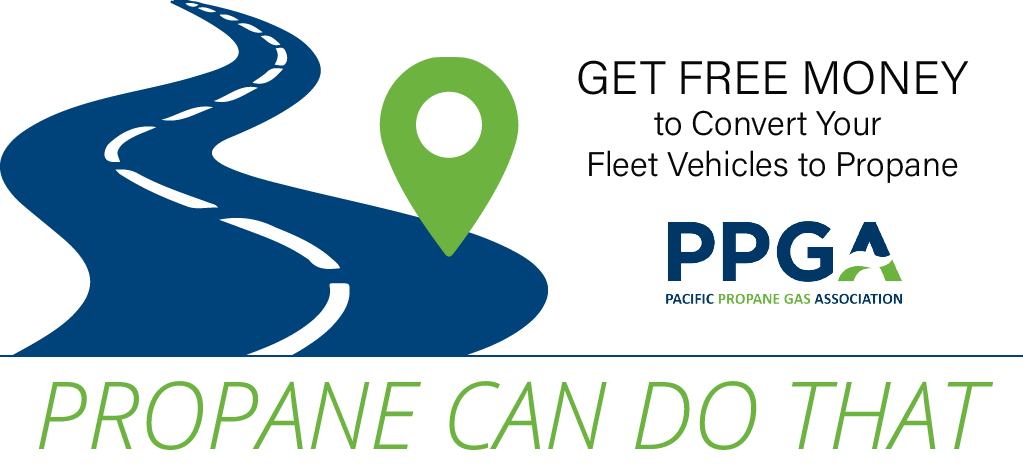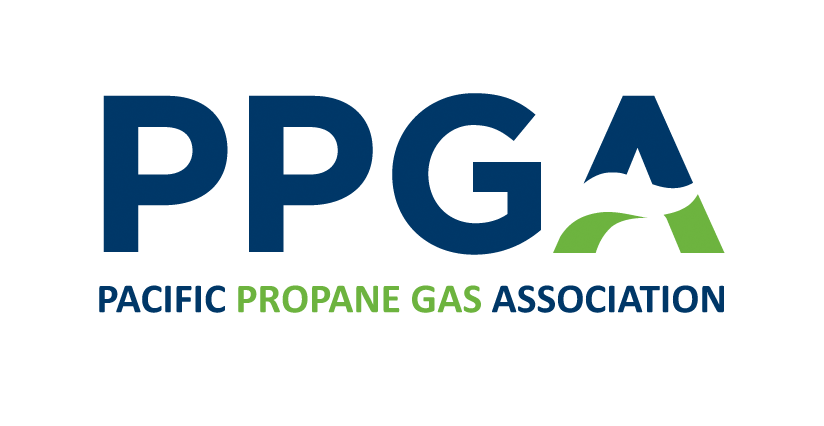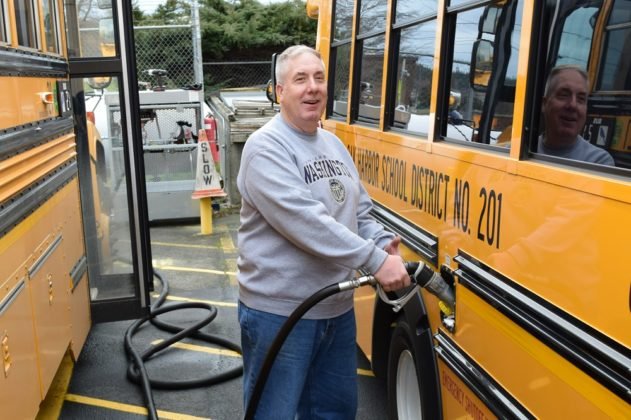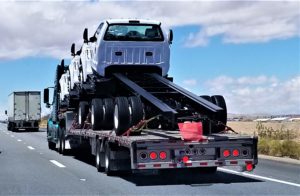In 2010, Oak Harbor Public Schools started converting its school buses to propane autogas. The Whidbey Island-based fleet currently operates 53 school buses to transport 3,500 students every week.
The switch to propane autogas stemmed from an interest in finding a greener fuel that safeguards the health of the young people the buses transport.
“My goal is to replace all my buses with cleaner, efficient options and, most of all, reduce our carbon footprint,” said Francis Bagarella, Transportation Director for Oak Harbor Public Schools.
Bagarella cited the fact that the Oak Harbor’s buses travel across most of Whidbey Island, so creating less pollution (and noise) benefits the entire community.
Oak Harbor Public School’s transportation team informed the local school board and leadership that making the switch to propane autogas was the right way to go. One of the biggest components was showing the savings in maintenance and service versus the cost of continuing business as usual. Highlighting the benefits of propane helped the school board approve the switch. School board officials even went on rides in school buses fueled by propane and diesel to better understand the fuels and how it impacts the riding and driving experience.
“It’s a no-brainer for us to convert our aging fleet with a cleaner, more efficient propane bus,” explained Bagarella.
After years of transition, the district now owns 19 propane-fueled school buses and expects to replace its entire fleet by 2025. Although Oak Harbor Public Schools is only switching out two or three buses a year, the fuel and maintenance savings from each new propane autogas bus allows the school district to put aside enough money to fund the next bus purchase.
Oak Harbor Public Schools is consistently recognized as a leader in alternative fueled-buses in the state of Washington. Numerous other school districts now reach out to Oak Harbor for guidance as they begin to deploy propane autogas in their own fleets. The school district also received the Northwest Clean Air Agency’s Platinum Clean Air Award in 2017. The Platinum Award is the Agency’s highest honor for actions that protect public health and improve air quality.
The biggest surprise after starting the transition to propane, according to Bagarella, has been the response from drivers and the public. Drivers love the propane-powered buses because they are much quieter than their diesel counterparts. This allows drivers to be more focused and keep children safer. The buses also have little to no downtime for repair or maintenance, which means they are quickly back on the road.
Parents and community members, and leaders also appreciate that students are breathing cleaner air.
Your district can also reduce their carbon emissions and save big, with help from the $1,500 Pacific Propane Gas Association Rebate available now.





